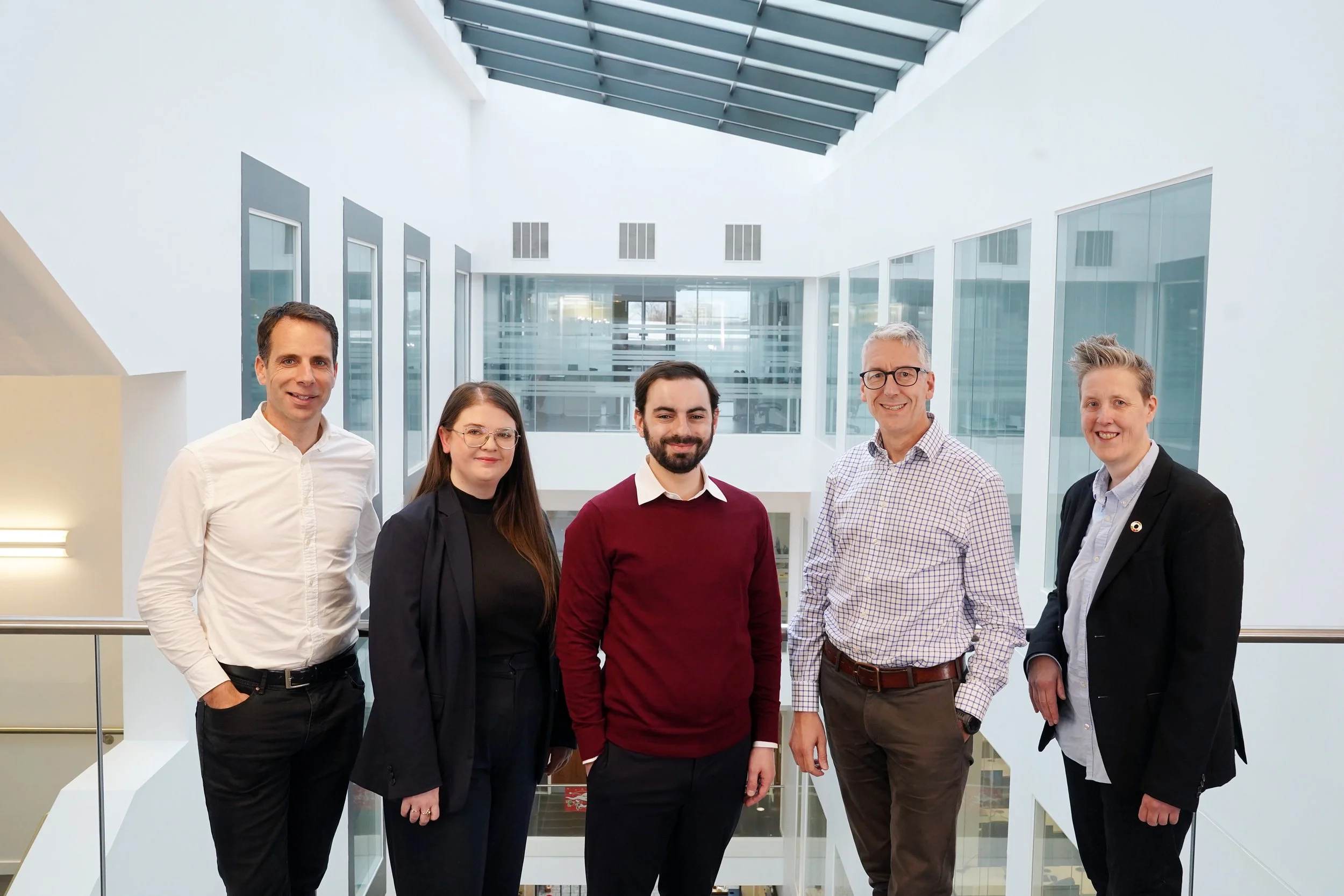Concinnity Genetics raises £3m to establish unique RNA-based control systems for precise control of gene therapies in oversubscribed round
Concinnity Genetics, an Edinburgh-based gene control company, is thrilled to announce the closure of its oversubscribed £3m seed funding round. The investment was led by Eos Advisory with support from Scottish Enterprise, Old College Capital (OCC) - the University of Edinburgh’s in-house venture investment fund, and Maven Capital Partners.
Co-founded by Jessica Birt and Dr Matthew Dale, Concinnity is transforming the safety of gene therapies by designing novel control mechanisms using its cutting-edge AI platform and synthetic biology expertise. These unique RNA-based systems enable the precise control of gene therapies even after dosing, conveying the ability to respond to and reduce their own side effects.
This funding will enable Concinnity to spin out from the lab of Professor Susan Rosser and the UKRI UK Centre for Mammalian Synthetic Biology at the University of Edinburgh and establish operations in Scotland’s thriving life science hub. The investment will be used to initiate three new programmes developing control systems targeted at key applications within the cell and gene therapy market, as well as continuing to develop Concinnity’s existing control systems with the aim of obtaining critical data to initiate partnerships with customers.
Jessica Birt, CEO and Co-founder, commented: “We are so excited to be taking the next step in our spin-out journey and want to sincerely thank all the investors and supporters who have helped us make it happen. Our ambition is to be the go-to partner for gene control to make gene and cell therapies as safe as possible. This commitment from our investors, building on the ongoing support from Scottish Enterprise, speaks to the potential they see in our work, and we look forward to using the funding to further develop our technology.”
Andrew McNeill, Managing Partner at Eos added: “Concinnity is a perfect fit for Eos’s focus on backing pioneering Scottish science, addressing a significant unmet need in gene therapy. By combining synthetic biology and AI-machine learning, the Concinnity technology has been described as the ‘holy grail for emerging gene therapies’, making such treatments both more effective and safer.”
Dr Andrea Taylor, CEO of Edinburgh Innovations, the University of Edinburgh’s commercialisation service, said: “Engineering biology is a major strength of the University of Edinburgh, catalysing novel solutions across our three mission areas of future health and care, data and AI for good, and climate and sustainability. Sophisticated gene control systems have the potential to revolutionise advanced therapeutics, enabling new kinds of treatments that will impact future health. We are proud to continue to support Concinnity Genetics on their translational journey from lab to clinic.”
For the past two years, Concinnity has been supported by Scottish Enterprise as part of its High Growth Spinout Programme. This funding has enabled the team to develop its technology, generating data for commercial validation that has supported the successful completion of this seed investment.
Kerry Sharp, Director of Entrepreneurship and Investment at Scottish Enterprise, said: “This investment round clearly demonstrates the huge potential of Concinnity’s technology, which has been recognised by investors. Scottish Enterprise has supported the team since its beginnings within the University of Edinburgh, so it’s fantastic to now be investing in it as it prepares to spin out.
“Life sciences is one of Scotland’s key growth industries and our investment and ongoing business support will help Concinnity convert and scale its innovation into international growth, delivering maximum benefits for Scotland’s economy.”

